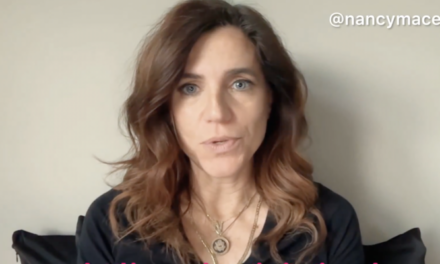We support our Publishers and Content Creators. You can view this story on their website by CLICKING HERE.
Right on the heels of PolitiFact declaring President-elect Donald Trump’s line about immigrants eating dogs and cats as the “Lie of the Year,” CBS Saturday Morning profiled legal Haitian immigrants in Springfield, Ohio, suggesting they would somehow suffer because of Trump’s promised mass deportation of illegal immigrants.
Correspondent Nicole Valdes highlighted a Haitian restaurant owner, Ketly Moise, who is legally in the U.S. thanks to Temporary Protected Status granted by the Department of Homeland Security. Listening to Moise describe the violence she and her family endured in Haiti, Valdes asked, “How scared are you to have to go back to Haiti?” without ever explaining how a legal resident could be deported as part of a program aimed at the millions who illegally crossed the U.S. Southern border during the Biden administration.
“Moise has watched her customers, employees, even daughter pack up and leave to other U.S. cities where they hope they won’t be targeted,” Valdes recounted. She asked Moise: “When your daughter told you she wanted to leave, did you think about also leaving?”
“Yes, I keep thinking about that,” Moise replied. “ I don’t know where I’m going to go, but I keep thinking about it.”
Valdes also talked to Moise’s cook, who showed a presumably gruesome (heavily blurred) picture of his brother who had been murdered, explaining that’s why he fled Haiti. Valdes asked, “Are you thinking about leaving because of the threat of deportation?”
“Yes,” the man replied in his own language, with Valdes translating.
Just this week, Trump’s incoming border czar, Tom Homan, made it clear that the deportation program will only target those in the U.S. illegally, prioritizing “criminals, gang members and fugitives” — like the gang currently tormenting the citizens of Aurora, Colorado. Yet instead of focusing on the problem of criminal illegal immigrants, CBS touted hardworking Haitian refugees who are legally in the U.S. as potential victims of Trump’s campaign pledge to restore order to the immigration process.
It was to be expected. During the President-elect’s first term, liberal journalists routinely castigated Trump’s immigration policies as evil, even akin to something from Nazi Germany. Saturday’s piece suggests we’ll hear more of the same in 2025.
Here’s a portion of the story as it aired on CBS Saturday Morning, followed by a full transcript (click “expand” to read it).
# CBS Saturday Morning
December 21, 2024, 8:30am ETCo-host DANA JACOBSON: Welcome back to CBS Saturday Morning. We begin this half hour with the impact of one of Donald Trump’s key campaign pledges. The President-elect made mass deportation a pillar of his re-election bid. He has promised to deport millions of immigrants, including some who are currently living in the United States legally. Nicole Valdes visited Springfield, Ohio, the city that is home to a sizeable community of Haitian immigrants that became the epicenter of the deportation debate during the election.
NICOLE VALDES: At the heart of a small Springfield, Ohio, shopping center stands Keket Bon Gout Caribbean restaurant, where every dish is a taste of home.
Owner KETLY MOISE: I just boiled that. It takes a long, long time to cook.
VALDES: That home is a a place Ketly Moise struggles to remember.
MOISE, crying: I can’t talk a lot.
VALDES: How scared are you to have to go back to Haiti?
MOISE: I’m scared…. I lost my mom, they shot my mom with a gun. Bombed my business. My daughter, she’s almost die [sic].
VALDES: Haitian immigrants like Moise have lived and worked in Springfield for years, getting work permits through Homeland Security’s Temporary Protected Status program, as violence in Haiti soared.
MOISE: I stay here. I do two job to make my business. That’s why I don’t wanna go back to Haiti.
VALDES: As America prepares for the start of a new administration, one that’s vowed to begin –
President-elect DONALD TRUMP: The largest deportation in the history of our country, and we’re going to start with Springfield.
MOISE: Sometimes I feed 60 people.
VALDES: 60?
MOISE: 65. For now sometimes 20, 25.
VALDES: How does that make you feel to see so many less people coming in?
MOISE: I feel bad. But I can’t do nothing.
VALDES: Moise has watched her customers, employees, even daughter pack up and leave to other U.S. cities where they hope they won’t be targeted. [to Moise] When your daughter told you she wanted to leave, did you think about also leaving?
MOISE: Yes. I keep thinking about that. I don’t know where I’m going to go, but I keep thinking about it.
VALDES: This cook shares similar grief. Oh my gosh.
MOISE: He wanna show you why he left Haiti.
VALDES: Showing us this photo [blurred picture on cell phone] of his brother who, he says, was brutally murdered in the country they once called home. Is that why you came here?
MOISE, translating: Yeah.
VALDES: Are you thinking about leaving because of the threat of deportation? [Foreign language spoken] Yes.
VALDES: Palpable fear and evidence of what life could look like for those forced to return to Haiti. Lindsey Amy [ph?] helps run Springfield’s Haitian community help and support center.
LINDSEY AMY: We’re not involved in drugs. We’re not involved in gun activity. So all we do is come to do is go to work, go to church, take our kids to school.
VALDES: And he’s trying to help calm fellow Haitians after he’s been asked by many whether they, too, should leave town.
AMY: Everybody tried to see if they can get themselves together, or try to not be the very first victim of the deportation.
VALDES: What do you think the impact will be if you continue to see members of this community leave Springfield?
AMY: The people who would leave Springfield, the migrants, people used to go to work everyday….They’re going to miss some good workers.
Restaurant customer: We’re hoping and praying for all the — everybody that’s here, whether it’s temporary status, protection, everything works out the way it needs to work out. God somehow works everything out, you know.
MOISE: If you have God, you have everything.
Customer: That’s right.
VALDES: Faith fueling Moise’s motivation to keep cooking and stay in Springfield, while her business and her future hang in the balance. For CBS Saturday Morning, Nicole Valdes, Springfield, Ohio.

 Conservative
Conservative  Search
Search Trending
Trending Current News
Current News 





